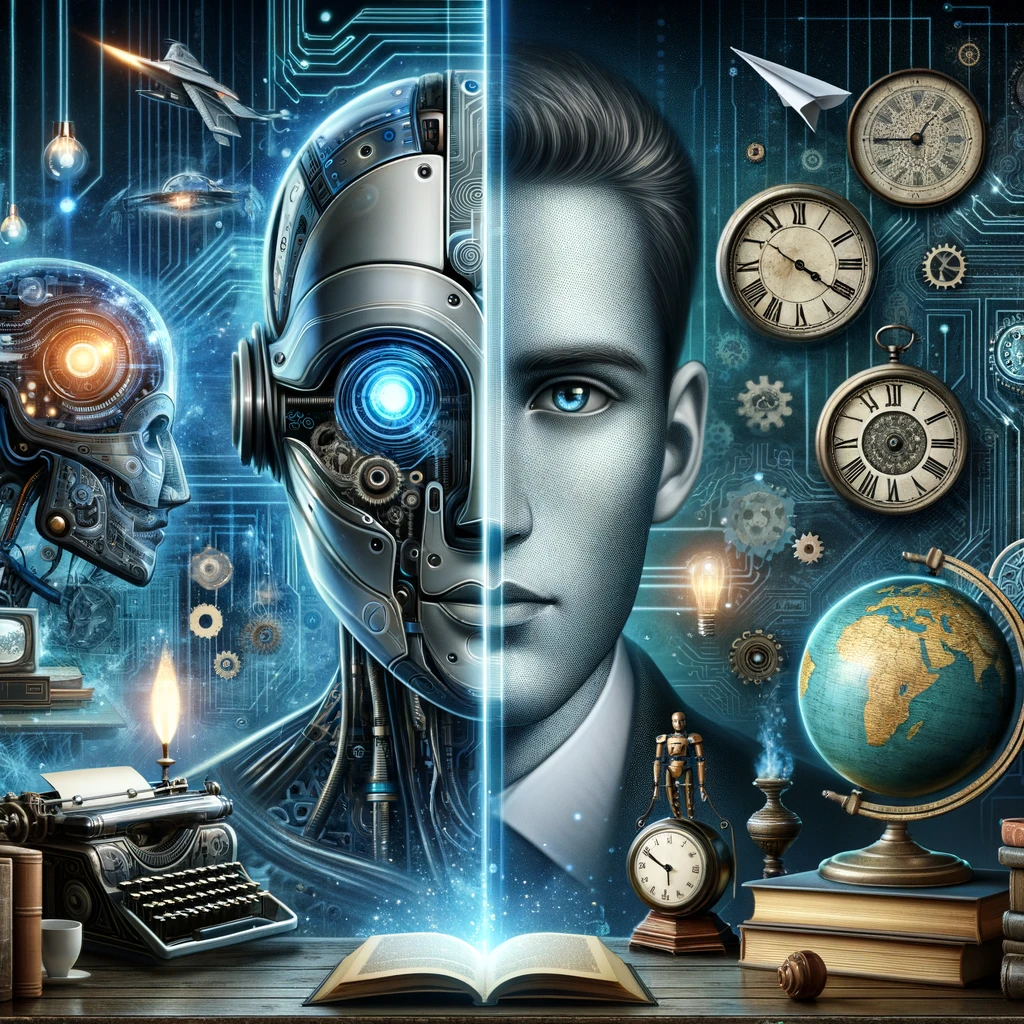In a bold move that could reshape education, England is investing £4 million to harness the power of artificial intelligence (AI) in classrooms. This initiative aims to tackle one of education’s most pressing issues: overwhelming teacher workloads. But as we dive into this digital revolution, we’re left wondering: Are we opening Pandora’s box of AI, or unlocking a treasure trove of educational potential?
Picture this: It’s 2025, and instead of burning the midnight oil grading papers, Ms. Johnson is sipping tea and planning an engaging lesson for tomorrow. Sounds like a teacher’s utopia, right? Well, that’s exactly what the Department for Education (DfE) is betting on with their latest AI gambit.
Let’s break it down:
- The AI Content Buffet: £3 Million for a Teacher’s Dream Imagine a massive, digital smorgasbord of educational goodies – assessments, curriculum guides, and teaching materials – all curated by the DfE. This isn’t just any content repository; it’s the golden ticket for AI developers to create classroom-ready tools tailored for England’s schools. It’s like giving Gordon Ramsay access to the world’s finest ingredients – the results could be spectacular!
- The £1 Million AI Assistant Challenge In a move that would make “The Apprentice” look like child’s play, the DfE is throwing down the gauntlet with a £1 million competition. The mission? Develop AI tools that can handle feedback and marking tasks by March 2025. It’s like “American Idol” for AI, but instead of the next pop sensation, we’re looking for the next education sensation.
But hold your horses! Before we start envisioning robot teachers (sorry, Terminator fans), let’s look at the bigger picture.
The Good, The Bad, and The AI-Powered On the bright side, this initiative could be a game-changer for teachers drowning in paperwork. Education minister Stephen Morgan envisions AI as the superhero sidekick for educators, allowing them to focus more on what really matters – face-to-face time with students. It’s like giving teachers a time-turner from Harry Potter, minus the paradoxes and Ministry of Magic regulations.
Early adopters like Chris Goodall from the Bourne Education Trust are already singing AI’s praises. Since late 2022, he’s been using AI to whip up classroom materials faster than you can say “pop quiz.” From tailored activities to special needs adaptations, AI is proving to be the Swiss Army knife of education tools.
But let’s not get too starry-eyed. The DfE’s own research shows that AI’s accuracy could skyrocket from a mediocre 67% to an impressive 92% when trained on targeted educational content. That’s a leap big enough to make even Evel Knievel nervous. While it’s promising, it also raises questions about the remaining 8% margin of error. In education, even small mistakes can have big consequences.
The Parent Trap Parents, unsurprisingly, are on the fence. While they’re all for AI helping teachers behind the scenes, the idea of their kids going mano-a-mano with AI in the classroom is about as popular as homework on weekends. Concerns range from the loss of essential social skills to reduced human interaction. It’s the classic “robots are stealing our jobs” fear, but with a “robots are stealing our children’s future” twist.
The Elephant in the Classroom Let’s address the chalk-dusted elephant in the room: teacher recruitment and retention. While AI promises to ease workloads, it doesn’t solve the underlying issues of inadequate pay and challenging working conditions. It’s like putting a Band-Aid on a broken bone – it might look good, but it’s not fixing the real problem.
So, What’s Next? As we stand on the brink of this AI education revolution, we’re left with more questions than answers. Will AI be the magic wand that transforms education, or will it be another tech fad that fizzles out faster than you can say “floppy disk”?
One thing’s for sure: the classroom of tomorrow is going to look very different from the one we knew. As we navigate this brave new world of AI-assisted education, we’ll need to strike a delicate balance between innovation and tradition, efficiency and humanity.
What do you think? Is AI in education the key to unlocking human potential, or are we risking turning our classrooms into soulless learning factories? Share your thoughts, and let’s keep this conversation going. After all, when it comes to shaping the future of education, we’re all in this together – humans and AIs alike.
